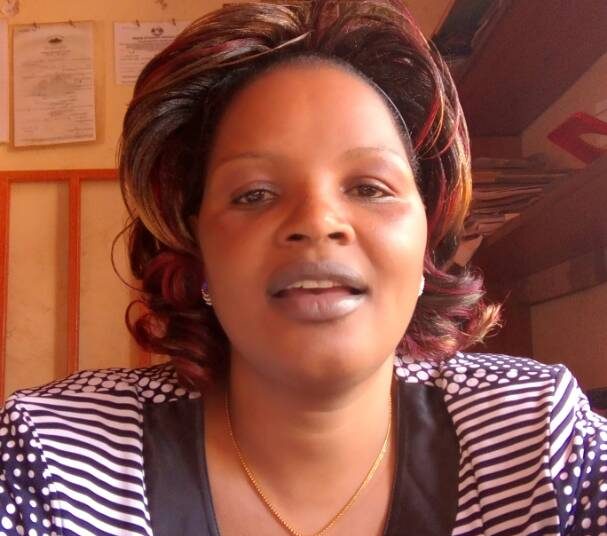Beatrice Nkatha Munyi was a tailor in Mukothima, Tharaka Nithi, not so long ago. Today, she owns two tractors for tilling land and harvesting. She owns a chain of agrovet shops, has more than 20 acres of land for growing sorghum, and works with hundreds of farmers as outgrowers.
Her positive attitude towards work has seen her recommended to assist in programmes supported by various companies and non-governmental organisations, meant to help farmers increase their farm yield and find ready markets for their produce.
One such programme is the Kenya Cereals Enhancement Programme (KCEP) meant to help farmers increase production of sorghum, millet, and green grams among other selected cereals. The programme is a strategic Public-Private Partnership between Equity Bank, the Government of Kenya, European Union and International Fund for Agricultural Development to address food security.
It is being implemented in several counties: Embu, Tharaka-Nithi, Kitui, Bungoma, Kakamega, Nakuru, Nandi and Trans Nzoia.
One of the main crops farmers are growing in Tharaka Nithi is sorghum and millet. It finds a ready market in East Africa Maltings which is used by its parent company to manufacture low-cost Senator beer.
Nkatha is an agent of Equity Bank. She has not only recruited farmers into this programme but acts as a liaison and godmother to most of them.
Under the programme, Equity Bank provides financing to farmers to buy farm inputs like seeds, fertiliser, pesticides, and hermetic storage bags through a voucher system.
Equity Bank provides an E-voucher platform that enables the farmers to access the inputs and ensure settlements are done on a real time basis. The e-voucher process involves the use of an electronic voucher provided by Equity Bank (K) Ltd. The bank then credits the appropriate e-wallet in farmers debit cards which are then presented to agro-dealers, appointed by the bank to implement the e-voucher scheme.
Equity Group Foundation (EGF) has been tasked to build the capacity of the selected beneficiaries by offering financial literacy training.
Farmers are also trained on better crop husbandry, meaning they produce more and earn more, therefore enabling them to pay their loans and borrow again, increasing the cycle of wealth creation.
“This programme has transformed our area. Farmers have more money because they harvest more crop than before and have a ready market. You can see the many small businesses they have started. The problem of paying school fees is over for farmers. They are able to buy better gadgets like smartphones and buy low cost healthcare insurance,” said Nkatha.
Nkatha plays several roles under the project. During land preparation, she leases her tractors to farmers at a cost of Sh1,800 per acre. She says before she bought the tractors, local farmers had to queue for long to get tractors and sometimes rains would come even before the tractors tilled the land. That is no more.
She runs an agrovet shop and is an agent of Equity Bank and is, therefore, able to provide farm inputs to farmers as long as they present the e-voucher to her. She says as a result of this partnership, she has increased the number for her agrovet shops to five additional branches. This has also enabled farmers to walk shorter distances to buy farm inputs.
“It has helped improve cash flow of my business too because of prompt payments of vouchers by Equity Bank. The moment I swipe the voucher, money is credited to farmers’ account immediately to pay for the inputs,” she said.
She also provides folia or crop food and later pesticides, all through the crop growing process. After harvest, she provides farmers with special storage bags known as ‘hermetic bags’ that have been recently introduced to stop post-harvest losses, which according to several studies average 30%.
She acts as a guarantor of loans to several farmers in her area. The farmers who may require money before they harvest are able to get loans from Equity Bank in Nkubu, guaranteed by Nkatha. They money will be paid back when they harvest.
During harvest, she leases her tractors to farmers as they are fitted with different blades to harvest different crops. Mechanized harvesting helps to reduce losses. She also offers farmers transport services from farm to market.
Nkatha also runs cereals stores. She buys sorghum from farmers and transports it to East Africa Maltings in Nairobi. Sorghum is usually bought at Sh32 per kg at the farm gate and Sh38 per kg on delivery to Nairobi. She also deals with other types of cereals.
“This project is making a significant change in our community. Change is visible,” she said.
Before the project started, farmers would harvest eight 90kg bags of sorghum or millet per acre. Today, they are harvesting on average 16 bags per acre, a double. This has been made possible by extension services where farmers are trained on better farming methods, use of fertiliser, folia, pesticides and access to finance to buy certified high-quality seeds.
“This programme has also had a major impact on my business. I have borrowed money from Equity Bank to buy two tractors, I have opened five new branches and most recently bought a pick-up vehicle to reach out to farmers,” said Nkatha.






